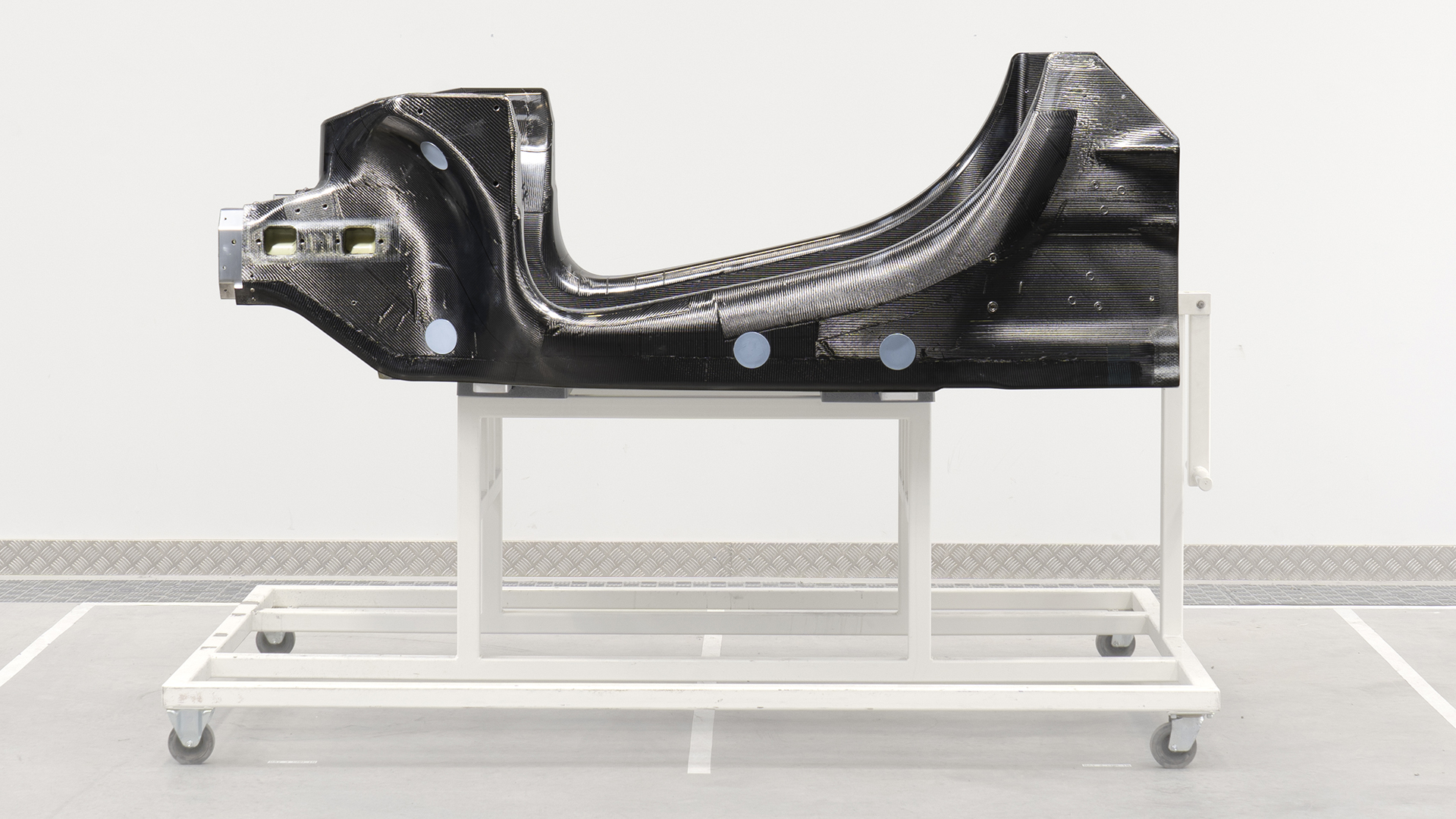

McLaren’s ultra-expensive Speedtail hypercar was the brand’s first hybrid model since the P1, though more are on their way. They’ll undoubtedly feature next-level powertrain tech and, as the Woking brand confirmed Tuesday, innovative new manufacturing techniques to make them incredibly light and strong. With the first hybrid model coming to McLaren’s Super Series in 2021, the automaker has unveiled its next-gen carbon-fiber tub as it rolls into its second decade of series vehicle production.
In 2011, McLaren Automotive introduced the MP4-12C supercar, built around a carbon tub designed for mid-ship layouts called the MonoCell. Weighing just 176 pounds, this single-piece unit took under four hours to make using resin transfer molding (RTM) technology and preform carbon fiber textiles. When the time came for the 570S, McLaren introduced its MonoCell II for all Sport Series models, along with the MonoCell II-T variant (as in Touring) for the GT. Meanwhile, faster coupés and roadsters like the hybrid P1, the 720S, the 765LT and the Senna use an even stiffer architecture family known as the Monocage I, II and III.
Last March, McLaren’s $65 million Composites Technology Centre near Sheffield produced its first “Prototype Lightweight Tub” known as PLT-MCTC – 01. Following crash evaluations in Woking and the composite plant’s setup for series production, McLaren CEO Mike Flewitt has confirmed the introduction of the brand’s “all-new, flexible, lightweight vehicle architecture which will underpin its next generation of electrified supercars”.

McLaren’s transition to a 100 percent electrified lineup begins with a new hybrid product launching next year. Due to the pandemic, Woking was forced to cut back on the pace of its Track 25 business plan, which involved 18 new models or derivatives being launched by 2025. Now, all we can look forward to in the near future is a possibly V6-powered hybrid that should still be just as quick as you’d expect from a McLaren.
Needless to say, Porsche is also claiming that its first hybrid 911 will deliver shocking speeds when it arrives sometime in 2021. May the best win—we’ll have our fun investigating what electric torque can do.

Got a tip? Send us a note: tips@thedrive.com